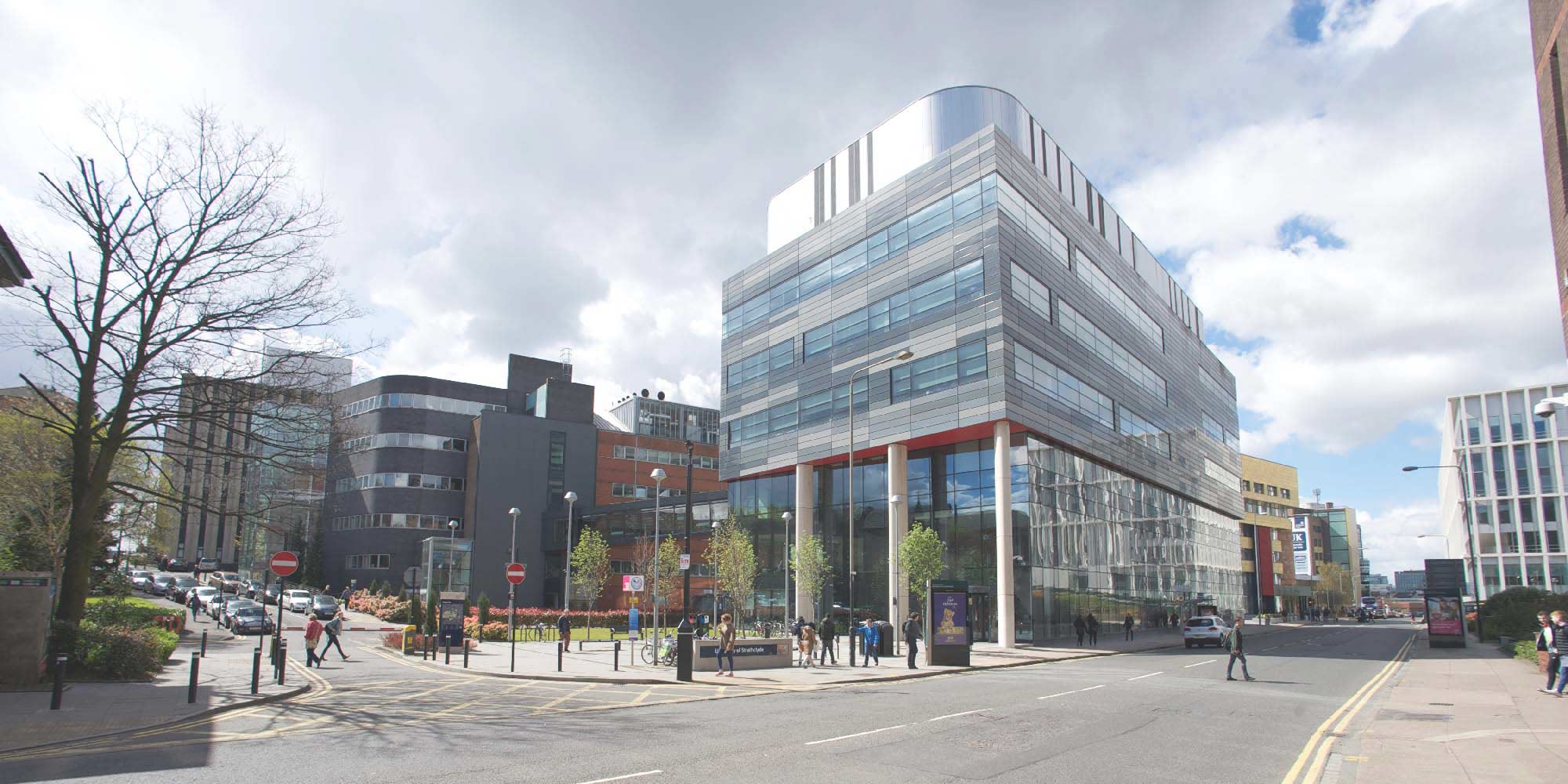MEng Civil & Environmental Engineering
ApplyKey facts
- UCAS Code: H290
- Accreditation: Institution of Civil Engineers, Institution of Structural Engineers, Chartered Institution of Highways and Transportation & Institute of Highway Engineers
5th in the UK for Civil Engineering (Times/Sunday Times Good University Guide 2023)
Study abroad: opportunity to study abroad in Year 3 or Year 5
Second-year entry: available for suitably-qualified students
Study with us
- five-year Masters in Engineering programme
- unique opportunities to participate in industry-led problem-based learning and mentoring
- groups design projects related to developed and emerging countries
- professionally accredited courses and academic partnership with the Institution of Civil Engineers
Accreditation
This degree is accredited by the :
- Institution of Civil Engineers (ICE)
- Institution of Structural Engineers (IStructE)
- Chartered Institution of Highways and Transportation (CIHT)
- Institute of Highway Engineers (IHE)
on behalf of the Engineering Council as fully satisfying the educational base for a Chartered Engineer (CEng).
See Joint Board of Moderators website for further information.
Why this course?
Civil engineering develops and improves facilities and services that society needs – from the supply of clean water and energy to the design and construction of roads, railways and stations.
Tall buildings such as the Shard in London or the new Queensferry Bridge across the Firth of Forth are exciting examples of civil engineering.
Our graduates develop and renew our towns and cities, and improve links with more remote communities.
Solving problems of air, land and water pollution and protecting society against natural disasters are also important aspects of civil engineering.
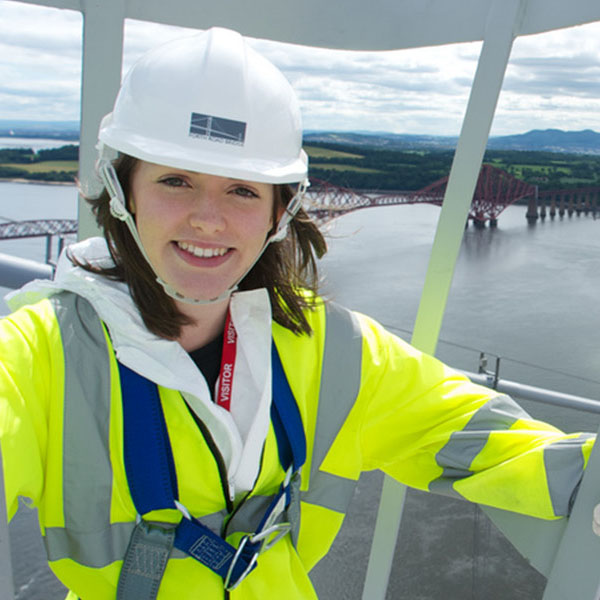

What you'll study
Courses in the Department of Civil & Environmental Engineering follow a common structure in Years 1 to 3. Five core threads run through the curriculum:
- structural engineering
- geotechnical engineering
- water engineering
- environmental engineering
- transport & construction
In the later years of study, the Civil & Environmental Engineering course places greater emphasis on the main aspects of environmental engineering, such as water and waste, water treatment and contaminated land remediation.
Year 1
You'll study foundations of civil engineering, including mathematics, engineering mechanics, civil engineering design, computing, professional skills and geology.
Year 2
The second year of study focuses on structural engineering, soil mechanics, hydraulics & hydrology, chemistry and materials, and surveying.
Years 3 & 4
In the third and fourth years you'll study structural engineering, geotechnical engineering, environmental engineering, transport planning & engineering, construction management and undertake a project dissertation. There is an increased emphasis on design and project work in the final two years of study.
Year 3 students can study within the EU as part of the Erasmus scheme or further afield on international exchange.
Year 5
Our flexible curriculum allows you to extend your knowledge in areas of civil engineering. You will also have the chance to select classes from across the Faculty of Engineering, including topics on renewable engineering. A wide range of topics is also available in business and management, environment and sustainability.
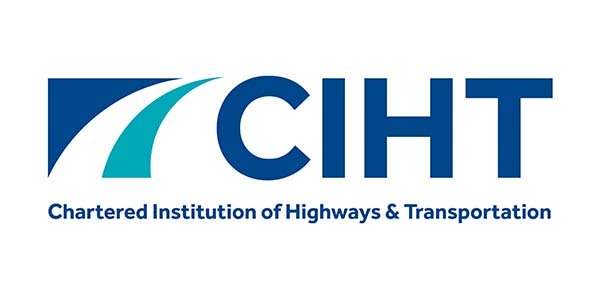
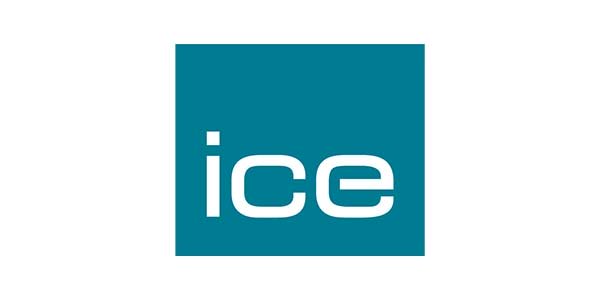
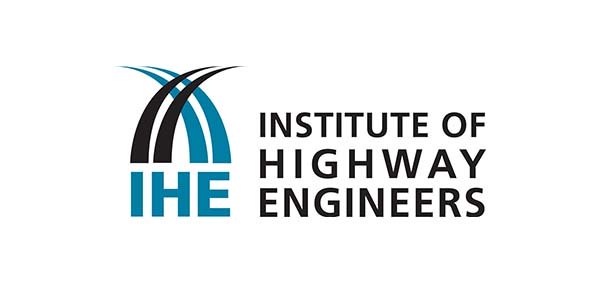
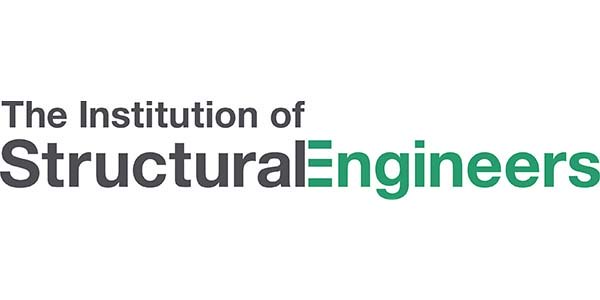
Induction course & mentoring
We run an induction course for first-year students, designed to make them feel at home in the department. We also run a student mentoring system, whereby senior students mentor new students and senior students are, in turn, mentored by Civil Engineering graduates. These activities highlight our commitment to teamwork, which we believe is a core strength of our courses.
Work placement
Some placements are tied to continuing sponsorship programmes.
The department will help you develop knowledge of industry through its mentoring scheme and personal development planning.
Facilities
New £6 million laboratory facilities include state-of-the-art geotechnical, structural and environmental research laboratories alongside two large undergraduate teaching laboratories. These enable you to gain practical skills and assist with key aspects of the course.
Student competitions
As part of the course curriculum, Year 3 students will take part in the Engineers Without Borders Challenge.
Year 5 students regularly take part in TATA Steel Student Design competitions.
In the past, our students have also participated in annual design competitions run by the Institution of Civil Engineers and the Institution of Structural Engineers along with competitions like the BP UltimateField Trip Challenge.
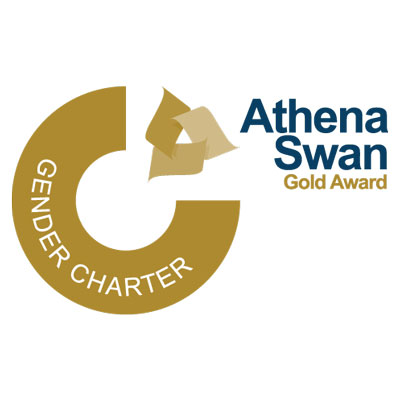
We've been awarded the Athena Swan Gold Award for our commitment to improve equality, and being an inclusive and supportive place to work and study.
Major projects
You'll work on design projects every year covering a range of activities. These projects will help you develop skills such as:
- investigating and interpreting problems
- analysing your options to select preferred solutions
- managing the design process
In Year 1, you'll work in small groups to develop concepts for a road bridge. You'll then build a scale model for load testing to verify your theoretical work.
After Year 1, projects become more challenging and progress to a group design project in Year 5.
This project integrates engineering science with other subjects learned in earlier modules. It provides a space where your taught modules can be applied to creative civil engineering design.
We offer a range of project options so you can work with your main interests.
You'll have support from both industrial tutors and departmental staff.
Learning & teaching
Our learning and teaching aims to equip students with the knowledge and skills required to build a successful career as an engineer.
Our teaching methods include:
- lectures
- tutorials
- student-led seminars
- group projects
- laboratory work
- fieldwork
Our courses also benefit from specialist lectures, case studies and supervision, which is provided by representatives of our industrial partners.
Assessment
We assess students individually and in groups, using a mix of methods ranging from class exams, coursework, laboratory reports and design submissions. Engineers are expected to be able to communicate well – orally, in writing and through drawing/sketching. Our assessment, therefore, seeks to test this range of skills.
Structural Mechanics & Materials 1
Civil Engineering Design Projects
Basic Mechanics & Fluid Statics
Engineering Geology & Soil Mechanics
Civil Engineering & the Environment
Structural Mechanics & Materials 2
This class aims to introduce you to advanced topics in structural engineering and limit state design.
Land Surveying & Mapping
Hydraulics & Hydrology
Soil Mechanics
Chemistry & Materials Science
Structural Engineering 1
Geotechnical Engineering 1
Water Engineering 1
Construction Project Management
Provides an introduction to:
- the principles of management within construction organisations
- the principles of project management within the construction industry
- financial monitoring & control of projects and businesses within the construction industry
- economic principles underlying decision making by firms in the construction industry
- construction innovation and competitiveness
- personal & professional development
Environmental Engineering
Engineering Mathematics
Transport Engineering
Geotechnical Engineering 2
Water Engineering 2
Solid Waste Management and Contaminated Land
Individual Project
Project Planning
Civil Engineering Design Projects 5
Entry requirements
Required subjects are shown in brackets.
| Highers | Standard entry requirements*:AAAA / AAABB (Maths A OR Maths B & 1 Science at A or B) Minimum entry requirements**:ABBB or BBBBB (Maths A OR Maths B & 1 Science at A or B) |
|---|---|
| A Levels | Year 1 entry: AAB-BBB (Maths A OR Maths B & 1 Science at A or B) |
| International Baccalaureate | Year 1 entry: 36-32 (Maths HL5 & 1 science subject HL5) Year 2 entry: 38-34 (Maths HL6 & 1 science subject HL6) |
| HNC/HND | Entry to BEng in the first instance |
| International students | View the entry requirements for your country. |
| English language requirements | If English is not your first language, please visit our English language requirements page for full details of the requirements in place before making your application. |
| Science subjects | Science subjects accepted are:
|
| Additional information |
|
*Standard entry requirements
Offers are made in accordance with specified entry requirements although admission to undergraduate programmes is considered on a competitive basis and entry requirements stated are normally the minimum level required for entry.
Whilst offers are made primarily on the basis of an applicant meeting or exceeding the stated entry criteria, admission to the University is granted on the basis of merit, and the potential to succeed. As such, a range of information is considered in determining suitability.
In exceptional cases, where an applicant does not meet the competitive entry standard, evidence may be sought in the personal statement or reference to account for performance which was affected by exceptional circumstances, and which in the view of the judgement of the selector would give confidence that the applicant is capable of completing the programme of study successfully.
**Minimum entry requirements
Contextual Admissions for Widening Access
We want to increase opportunities for people from every background.
Strathclyde selects our students based on merit, potential, and the ability to benefit from the education we offer. We look for more than just your grades. We consider the circumstances of your education and will make lower offers to certain applicants as a result.
University preparation programme for international students
We offer international students (non-UK/Ireland) who do not meet the academic entry requirements for an undergraduate degree at Strathclyde the option of completing an Undergraduate Foundation Programme in Business and Social Sciences at the University of Strathclyde International Study Centre.
Upon successful completion, you can progress to your chosen degree at the University of Strathclyde.
International students
We've a thriving international community with students coming here to study from over 100 countries across the world. Find out all you need to know about studying in Glasgow at Strathclyde and hear from students about their experiences.
Visit our international students' section
Fees & funding
All fees quoted are for full-time courses and per academic year unless stated otherwise.
Fees may be subject to updates to maintain accuracy. Tuition fees will be notified in your offer letter.
All fees are in £ sterling, unless otherwise stated, and may be subject to revision.
Annual revision of fees
Students on programmes of study of more than one year (or studying standalone modules) should be aware that tuition fees are revised annually and may increase in subsequent years of study. Annual increases will generally reflect UK inflation rates and increases to programme delivery costs.
| Scotland |
Fees for students who meet the relevant residence requirements in Scotland are subject to confirmation by the Scottish Funding Council. Scottish undergraduate students undertaking an exchange for a semester/year will continue to pay their normal tuition fees at Strathclyde and will not be charged fees by the overseas institution. |
|---|---|
| England, Wales & Northern Ireland | £9,250 Assuming no change in fees policy over the period, the total amount payable by undergraduate students will be capped. For students commencing study in 2024/25, this is capped at £27,750 (with the exception of the MPharm and integrated Masters programmes), MPharm students pay £9,250 for each of the four years. Students studying on integrated Masters degree programmes pay an additional £9,250 for the Masters year with the exception of those undertaking a full-year industrial placement where a separate placement fee will apply. |
| International | £26,700 |
| Additional costs | Course materials & costsPersonal Protective Equipment (PPE)
Placements & field trips
International studentsInternational students may have associated visa and immigration costs. Please see student visa guidance for more information. |
| University preparation programme fees | International students can find out more about the costs and payments of studying a university preparation programme at the University of Strathclyde International Study Centre. |
| Available scholarships | Take a look at our scholarships search for funding opportunities. |
Please note: All fees shown are annual and may be subject to an increase each year. Find out more about fees.
How can I fund my studies?
Students from Scotland
Fees for students who meet the relevant residence requirements in Scotland, you may be able to apply to the Student Award Agency Scotland (SAAS) to have your tuition fees paid by the Scottish government. Scottish students may also be eligible for a bursary and loan to help cover living costs while at University.
For more information on funding your studies have a look at our University Funding page.
Students from England, Wales & Northern Ireland
We have a generous package of bursaries on offer for students from England, Northern Ireland and Wales:
You don’t need to make a separate application for these. When your place is confirmed at Strathclyde, we’ll assess your eligibility. Take a look at our scholarships search for funding opportunities.
International Students
We have a number of scholarships available to international students. Take a look at our scholarship search to find out more.
Faculty of Engineering International Scholarships
If you're an international applicant applying for a full-time, on-campus undergraduate course in the Faculty of Engineering, you'll be eligible to apply for a scholarship award equivalent to a 10% reduction of your tuition fees for each year of study. The first year of the scholarship will typically be £2,670 deducted from fees.
Scholarships are available for applicants to all self-funded, new international (non-EU) fee-paying students holding an offer of study for a full-time, on-campus undergraduate course in the Faculty of Engineering at the University of Strathclyde.
Please note you must have an offer of study for a full-time course at Strathclyde before applying. You must start your full-time undergraduate course at Strathclyde in September 2024.
Faculty of Engineering International Scholarships
Careers
Our graduates’ ability to fit quickly and productively into teams in industry makes them highly employable. Many graduates work not only in Civil Engineering and construction but also in areas such as oil and gas, renewable energy, business and accountancy.
Some of our graduates also continue into postgraduate research.
How much will I earn?
£25,000 is the average salary of our graduates six months after completing the course. The typical salary range is £23,000 to £30,000.*
Where are they now?
82% of our graduates are in work or further study.**
Recent job titles include:
- Civil Engineer
- Graduate Civil Engineer
- Management Graduate Trainee
- Superintendent
- Surveyor
- Structural Engineer
Recent employers include:
- AECOM
- Atkins Global
- Babcock International
- Laing O'Rourke
- Jacobs UK Ltd
- Mott MacDonald
- Royal Boskalis Westminster
*Information is intended only as a guide.
** Based on the results of the national Destinations of Leavers from Higher Education.
Apply
Start date:
Civil & Environmental Engineering (1 year entry)
Start date: Sep 2024
Civil & Environmental Engineering (1 year entry)
Glasgow is Scotland's biggest & most cosmopolitan city
Our campus is based right in the very heart of Glasgow. We're in the city centre, next to the Merchant City, both of which are great locations for sightseeing, shopping and socialising alongside your studies.
Life in Glasgow
Contact us
Have you considered?
We've a range of courses similar to this one which may also be of interest.
Discover Uni
Discover Uni includes official statistics about higher education courses taken from national surveys and data collected from universities and colleges about all their students.

